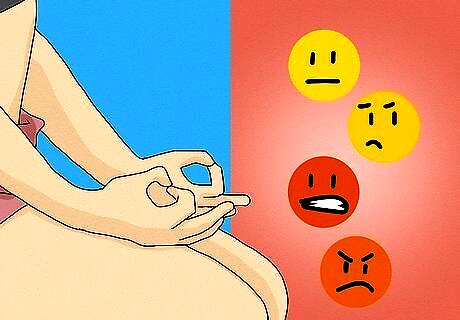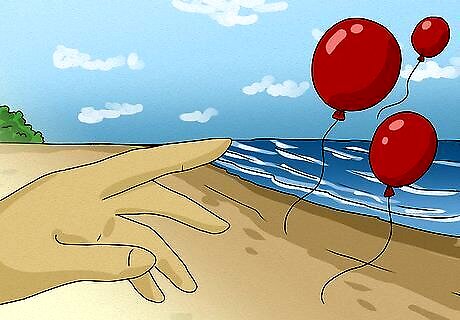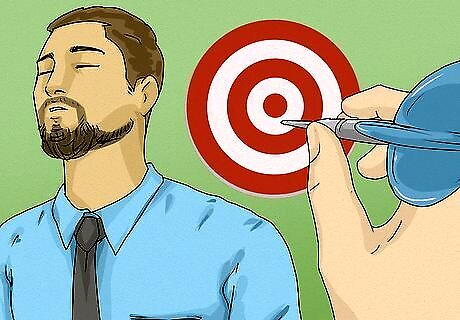
views
- The Law of Detachment is a spiritual practice about letting go of worry and allowing things to happen.
- The Law of Detachment can be described by the mantra, “Release and let go.”
- To use the Law of Detachment, let go of what’s no longer serving you and open your mind to all possibilities.
What is the Law of Detachment?

Spiritually, the Law of Detachment is letting go of emotions to manifest your desires. This law is a universal spiritual practice used in many faiths and religions, such as Taoism and Buddhism. The law states that if you separate yourself from your emotions, you have a greater chance of achieving your goals. In other words, you must detach yourself from potential outcomes and trust that everything will work out in the end. Many believe that the Law of Detachment is about control, but it’s actually about surrender and trust. Those who follow the law surrender their feelings, trusting that the universe has a greater plan for them—they allow a higher power to take control. Along with this, the Law of Detachment isn’t about ignoring your emotions. It’s simply the act of acknowledging and letting them go so they’re not an obstacle. The Law of Detachment can be summed up with the affirmation, “Release and let go.” Think of it like this: Rather than thinking it must be this way, Law of Detachment followers think “things will work out in the end” or “everything happens for a reason.”
How to Use the Law of Detachment

Detach yourself from your emotions. The first step to practicing the Law of Detachment is to let go of what’s no longer serving you. Push negative thoughts, worries, and anxieties aside by detaching yourself. They’re blocking you from your true potential. For instance, rather than thinking, “If I don’t pass this class, I’m a loser,” try, “If I don’t pass this class, that’s okay. Maybe I’m meant to retake it or try a different career path.” If you start feeling emotionally overwhelmed, practice mindfulness to recenter yourself and let go of your emotions by going on a walk or focusing on what you can taste, see, and smell. Know that following the Law of Detachment isn’t something that can happen overnight—it’s a practice and day-by-day process.

Let go of what you can’t control. No matter what divine power you believe in, the Law of Detachment follows the ideology that you can’t control everything that happens around you. Release and let go of the need to control your surroundings. Instead, let things play out. If they work in your favor, great! If not, maybe that’s a part of the universe’s plan. Think of it this way: You know what will happen if you don’t eat (you’ll likely become hangry), but you don’t know what will happen on a first date or during a job interview. As another example, you can’t control what people say to you, but you can control your attitude and response.

Have an open mind and go with the flow. Being open to every and all possibilities is a huge part of following the Law of Detachment. You don’t truly know what will happen next, so avoid making predictions. Instead, go with the flow and be open to whatever opportunity comes your way. After all, the universe may be pushing you toward your correct path. For example, say your plane gets delayed, and you must stay in a different town for another day. Rather than getting upset, take this as an opportunity to explore and meet new people. Who knows? Maybe you’re supposed to bump into your life partner in this town this very night. If you get a bad grade on a test, instead of getting upset with yourself, take a deep breath and remember that everything happens for a reason. Maybe you’re meant to meet up with a tutor or start a study group with friends.
Examples of How It Can Benefit You

In friendships and relationships The Law of Detachment makes room for genuine connections. When you detach from your emotions, you’re giving yourself space to be authentically you. You don’t have to worry about “fitting in” or “being a catch.” You can be yourself and not care about what other people may think, which allows you to meet people who accept you for you. Let’s say you’re meeting up with a new group of friends. The Law of Detachment allows you to set aside worries that you won’t fit in. Rather than fearing what they may think of you, you can live in the present moment and enjoy their company.

On a first date Rather than getting swept off your feet right away, the Law of Detachment helps you see a potential partner with clear eyes. By detaching yourself from your emotions, you don’t project anything that isn’t there or anticipate what will happen. This can help you be more at ease, helping you to be yourself on the date and take it in as a new experience. For instance, say a friend hooks you up on a blind date. The Law of Detachment gives you space to be present. By pushing predictions aside, you can enjoy the date for what it is and think about future possibilities later.

At work The Law of Detachment can look like letting go of stress and anxiety around work responsibilities. Say you’re hoping for a promotion. Rather than thinking about the promotion 24/7 and working yourself up when you meet with your boss, you detach from your emotions and go about your day. This can help you be more relaxed and focused at work. For example, if you’re following the Law of Detachment at work, you’ll be able to take each obstacle and set back as an opportunity. Say you get laid off. While this is never ideal, a Law of Detachment mindset can help you view the circumstance as a new opportunity to grow and find your right path.

When setting goals Detaching yourself from your emotions gives you the chance to see things as they truly are. Because of this, the Law of Detachment helps you analyze your past, present, and future logically. You can set goals that fit your current path without being emotionally charged or vulnerable. In other words, you can be more flexible with the ideology that things will happen if they’re meant to happen. Let’s say your goal is to write a novel. While you may have short- and long-term goals on when you want to complete your project, the Law of Detachment helps you loosen the reigns and be more flexible. If you miss a deadline, oh well! Remember, everything happens for a reason.




















Comments
0 comment